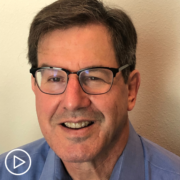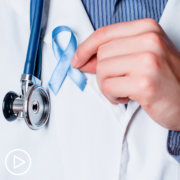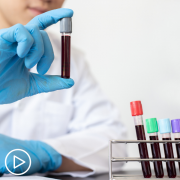Tips for Managing Your Oral CLL Treatment Schedule
Tips for Managing Your Oral CLL Treatment Schedule from Patient Empowerment Network on Vimeo.
Patients taking an oral CLL therapy have a responsibility in managing their own care. Dr. Jean Koff, a CLL expert from Winship Cancer Institute of Emory University, discusses the importance of staying on schedule with medications and shares advice for being consistent.
Dr. Jean Koff is an Assistant Professor in the Department of Hematology and Oncology at Winship Cancer Institute of Emory University. Learn more about Dr. Koff, here.
Related Resources:

|

|

|
Transcript:
Katherine Banwell:
With oral medications available to treat CLL, patients now have the role of self-administering with their treatment program. How does this work exactly?
Dr. Jean Koff:
So, just as you would receive a prescription from one of your doctors to manage your high blood pressure with a bottle of pills, you would also receive a special prescription from the doctor who is managing your CLL, a prescription for one of these oral agents. Either the BTK inhibitors or a venetoclax. And you would be – you would have the instructions on the pill bottle, just as you would you know another prescription, and you would take the medication by mouth, every day, as instructed.
Katherine Banwell:
Okay. What happens if a patient forgets to take their medication? Does it impact efficacy?
Dr. Jean Koff:
So, forgetting a dose for one day, or having to skip a dose for another reason, or even a few days, shouldn’t have a major impact on controlling the CLL. And that’s true for two reasons. One, you’re going to start taking your medication again, you know fairly soon after you miss that dose. The next day or – or in a few days. But also, the – what we call the half-lives of these drugs are relatively long, and so you have some activity of the drug in your system in its ability to control the CLL, even though you haven’t taken the dose that you missed that day. In fact, sometimes we have to hold CLL medications.
Maybe you’re getting a procedure, some sort of surgical procedure, and you might be at an increased risk of bleeding just in the day or two before and after that surgical procedure, so we would actually recommend that you hold a BTK inhibitor, if that was what you were receiving for your CLL, and then resume it once your risk of bleed had gone down a few days after the surgery.
We do recommend that if you are going to miss a dose of your medication that you let your clinical team know, just so they can instruct you on how to resume your dose if you haven’t already gotten instructions from them about that.
Katherine Banwell:
Okay. That’s really helpful information. What strategies are there to keep on schedule and remember to take the medication on time and regularly?
Dr. Jean Koff:
So, I think these strategies are good whether you have CLL or some other type of disorder that you’re taking medication for. My patients often use labeled pill boxes with days of the week and a.m. and p.m., so that you know whether you took your pill that day and what time of day you took it. And so, setting that out for the week can be very helpful in organizing and making sure that you can check back and remind yourself whether or not you took your pill.
Katherine Banwell:
How are patients monitored during treatment?
Dr. Jean Koff:
So, your doctor is going to monitor you more closely when you first start a medication. So, I typically monitor my patients within one or two weeks of them starting an oral drug. One to make sure that they’re feeling okay on it, that they’re not having any side effects when they first start, but also to check lab values and make sure that the – the oral medication isn’t causing any problems with their blood counts or with other labs. Then, once we’ve established that they’re doing well on the medication, maybe they’ve come in every couple weeks for a month or six weeks, we start to space out those visits.
I usually see my patients who are on active therapy about every three to six months to check and see whether they’re feeling okay, whether they’re having any side effects from the medicines, like I said to check their labs, make sure the medications aren’t causing any lab abnormalities. And also in the longer term, to make sure that their CLL is under good control on – on the medications. Because that’s one of our main goals is to keep the CLL under good control.










